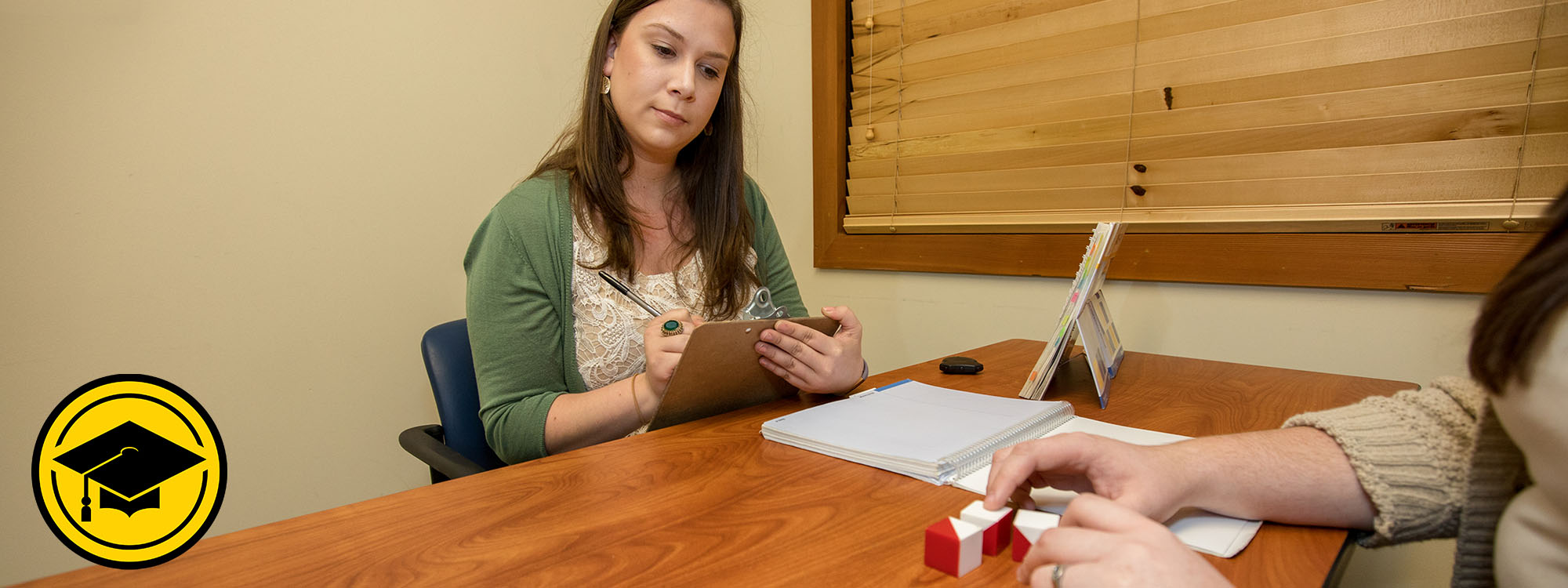BOONE, N.C. — Appalachian State University has received approval from the University of North Carolina Board of Governors to establish a Doctor of Psychology (Psy.D.) program, with a primary goal of training students in clinical psychology to serve rural populations. Appalachian plans to begin admitting students in fall 2019.
The program will help address the shortage of providers in North Carolina, where about one-quarter of the state’s 100 counties have no practicing psychologist, according to a 2016 report by the Cecil G. Sheps Center for Health Services Research at UNC Chapel Hill.
“The foresight of the board of governors in sanctioning this doctoral program at Appalachian helps us address the ever-increasing demand for psychologists in North Carolina, especially in underserved, rural areas,” Chancellor Sheri Everts said. “This program also expands our capacity for outreach, research and collaboration with communities. In addition to the health and wellness benefits, the program will strengthen communities through the additional professional workforce.”
The Psy.D. program will be housed in Appalachian’s Dr. Wiley F. Smith Department of Psychology in the College of Arts and Sciences. Its curriculum will be designed to meet requirements for American Psychological Association (APA) accreditation. The program’s goal is to develop psychologists who are well-rounded practitioners trained in and committed to evidence-based professional practice. The program has already been approved by the university’s accrediting body, the Southern Association of Colleges and Schools Commission on Colleges.
This will be Appalachian’s second doctoral-level degree. The Doctor of Education program has been offered through Appalachian’s Reich College of Education since 1992.
Details of the program
Students in the Psy.D. program will gain a broad knowledge in psychology, assessment, intervention, research and other topics, as well as significant applied supervised clinical training in the community. Sites already used as part of Appalachian’s master’s degree program in clinical psychology include area schools through the Assessment, Support and Counseling (ASC) Centers, founded by Appalachian faculty to reach young people in rural areas; medical practices in the community; and the university’s Psychology Clinic and Counseling and Psychological Services Center.
Students will also gain an understanding of the impact of culture and diversity on clinical practice, said program director Dr. Lisa Curtin. This includes the ecological factors that affect individual and community development.
For example, Curtin said a provider’s recommendation to treat depression through exercise, as supported by research, might not be feasible for a client without access to a gym or safe sidewalks for walking. Or, a client who values self-reliance may have difficulty asking friends and family for support, as a provider might typically recommend, she said. Students in Appalachian’s program would learn how to identify these issues or concerns and find alternatives that work for the client while also adhering to professional standards and evidence-based practice.
The doctoral program will require both a doctoral dissertation, which documents mastery of scientific skills, and a pre-doctoral internship in a clinical setting.
Upon completion of the program, graduates will be eligible to apply for licensure as psychologists and health service providers, with qualification to establish careers in the private and public sectors. These include clinics, hospitals, community agencies, university counseling centers, public schools and private practice. They may also teach in colleges and universities, and provide supervision to master’s-level practitioners.
A history of providing education in clinical psychology
For nearly 50 years, Appalachian has offered a master’s degree in clinical psychology. Its graduates become licensed psychologist associates, who must be supervised by a licensed psychologist or health service provider. The master’s program is being phased out, and its eight faculty, who are all licensed psychologists, will serve as the doctoral program’s core faculty.
Curtin said the new degree should better meet the state’s needs.
“Since our master’s graduates must be supervised by a doctoral-level licensed psychologist, the master’s degree does not fully address the shortage of professionals in clinical psychology. By offering a doctoral program, Appalachian can graduate professionals trained at the highest-level degree, and who can take a contextual view of health and well-being and build on the existing strengths of a local community,” she said.
About the Dr. Wiley F. Smith Department of Psychology
Appalachian State University’s Dr. Wiley F. Smith Department of Psychology serves more than 1,400 undergraduate majors seeking the Bachelor of Arts or Bachelor of Science degree in psychology, as well as 90 graduate students across four graduate programs: experimental psychology (MA), industrial-organizational psychology and human resource management (MA), school psychology (MA/SSP) and clinical psychology (PsyD). Learn more at https://psych.appstate.edu.
About the College of Arts and Sciences
The College of Arts and Sciences (CAS) at Appalachian State University is home to 17 academic departments, two centers and one residential college. These units span the humanities and the social, mathematical and natural sciences. CAS aims to develop a distinctive identity built upon our university's strengths, traditions and locations. The college’s values lie not only in service to the university and local community, but through inspiring, training, educating and sustaining the development of its students as global citizens. More than 6,800 student majors are enrolled in the college. As the college is also largely responsible for implementing App State’s general education curriculum, it is heavily involved in the education of all students at the university, including those pursuing majors in other colleges. Learn more at https://cas.appstate.edu.
About Appalachian State University
As a premier public institution, Appalachian State University prepares students to lead purposeful lives. App State is one of 17 campuses in the University of North Carolina System, with a national reputation for innovative teaching and opening access to a high-quality, cost-effective education. The university enrolls more than 21,000 students, has a low student-to-faculty ratio and offers more than 150 undergraduate and 80 graduate majors at its Boone and Hickory campuses and through App State Online. Learn more at https://www.appstate.edu.
What do you think?
Share your feedback on this story.





![How NCInnovation Is Rethinking Economic Development in North Carolina [faculty featured]](/_images/_posts/2026/02/rethinking-economic-development-600x400.jpg)






